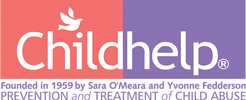Child Sex Abuse – Helping a Child Who Has Been Sexually Abused
Unfortunately, child sexual abuse is not uncommon. If you find out a child has been sexually abused, it’s important to ensure the child feels safe before determining how to help them. You can call a helpline, utilize helpful resources, or contact a child sexual abuse attorney for legal advice.
Whether you’re helping a child after they suffered sexual abuse or you’re now an adult survivor, it’s critical to understand the signs of child sex abuse, its long-term effects, and how to help overcome the resulting trauma.

Key Takeaways
What is Child Sex Abuse?
Child sexual abuse includes many different types of sexually abusive acts done to children, but the US Centers for Disease Control and Prevent (CDC) specifically defines child sexual abuse as “any completed or attempted (non-completed) sexual act, sexual contact with, or exploitation (i.e., noncontact sexual interaction) of a child by a caregiver.”
Child sex abuse takes many different forms, including:
- Fondling
- Intercourse
- Incest
- Commercial exploitation of children
- Sex trafficking
- Masturbation in the presence of a minor
- Harassment
- Threats
- Sexual assault
- Rape
- Force exposure to pornography
- Taking unwanted sexual images
(i.e., filming or photography)
How Often Does Child Sex Abuse Occur?
Child sexual abuse is common in the United States and around the world. In 2016 alone, Child Protective Services (CPS) found significant evidence to support that 57,329 children were victims of sexual abuse. CPS further substantiates they receive a claim of child sexual abuse every 9 minutes, making this type of abuse a widespread problem throughout the country.
Both boys and girls can be child sex abuse victims. Statistics show one in nine girls and one in fifty-three boys under 18-years-old experience sexual abuse or assault. Additionally, 91-93% of child sex abuse victims know the perpetrator, with 34% of perpetrators being family members, 59% being acquaintances, and only 7% being strangers.
Child Sex Abuse Victim Rate


Percentage of Abuser Relationship

Where Does Child Sexual Abuse Happen?
Child sexual abuse can happen anywhere the perpetrator has access to the child, including:
In-Home
As mentioned, 91-93% of child sex abuse victims know the perpetrator. These perpetrators can be older siblings, parents, grandparents, or family friends. If you find out that a family member sexually abused your child, you might feel understandably angry or conflicted. It’s vital to manage those emotions appropriately and prioritize the safety of your harmed child.
Children sexually abused by a family member might keep the abuse a secret due to a lack of understanding, shame, or a promise not to tell. Regardless, child molestation can cause long-term, detrimental effects, so it’s essential to know the warning signs to get your child help immediately. Keep reading for more information about the signs and symptoms of child sexual abuse.
Out-of-Home
Child sex abuse also occurs at the hands of strangers or known perpetrators during a child’s everyday activities. Commonly, parents and guardians place adult figures outside of the child’s family in trusting positions, such as church clergymen, coaches, and teachers, making children susceptible to abuse. The following are some examples of out-of-home places where child sexual abuse can happen:
- Foster Care
When children enter foster care, there’s a risk they might leave one non-ideal home situation and fall victim to child sexual abuse. The foster care system is understaffed, has low budgets, minimal training, and inadequate supervision levels, making children in foster homes vulnerable to poorly vetted caretakers. - Schools
Child sex abuse in schools is often an open “secret,” with perpetrators gaining a reputation for abuse but school districts covering it up. Teachers have proximity to many marginalized, vulnerable students, making the extent of the problem in US schools almost impossible to quantify. - Clergy
Child sexual abuse can happen in the church, and there’s a lack of procedures for tracking clergy members accused of abusing children who get transferred out of state. The absence of a reporting system and minimal repercussions for abusers has made the church a prime location for vulnerable children. - Diocese
Child protection policies for the church and diocese are inadequate to protect children from abusers. - Doctors
Pediatricians and sports medicine doctors are consistently close to children. When doctors sexually abuse children, it often makes headlines, including instances with Dr. Larry Nassar with the USA Gymnastics team and Dr. George Tyndall from USC. - Sports Leagues/Coaches
Statistics about coaches sexually abusing children are difficult to calculate because many instances go unreported. This abuse happens when coaches placed in trusting positions take advantage of their influence and authority over children.
In all situations where you trust another adult to care for your child, it’s critical to know the warning signs of child sexual abuse to protect your child, stop the abuse, and help your child heal.
Warning Signs of Child Molestation and Symptoms of Child Abuse
Sometimes, it’s difficult to spot the warning signs of child sex abuse. Perpetrators often take measures to prevent the child from disclosing the abuse. Often, though, you can observe certain physical, behavioral, and emotional signs. Physically, if your child has a sexually transmitted infection (STI), it’s likely they may have been the victim of child sexual abuse. If you notice any signs of trauma in the genital area, such as bleeding, bruising, bloody sheets, underwear, or clothing, those are potential signs of child molestation.
You might also notice behavioral changes, including:
- Excessive talk about or knowledge of sexual topics
- Being more secretive or less talkative
- Not wanting to be left alone with specific individuals or being afraid to be away from primary caregivers
- Regressive behaviors (e.g., thumb-sucking or bedwetting)
- Overly compliant behavior
- Sexual behavior that is uncommon or inappropriate for the child’s age
- Choosing to be isolated from others
- Avoiding removing clothes to change or bathe
Emotional signs of child sexual abuse include:
- Lack of appetite or change in eating habits
- Changes in the child’s mood or personality (e.g., aggression, fear, insecurity, withdrawal)
- Decrease in confidence or self-image
- Showing excessive worries or fearfulness
- Engaging in self-harming behaviors
- Increased nightmares or fear of being alone at night
- Unexplained health problems (e.g., stomachaches and headaches)
- Lost interest in ordinary activities (e.g., school, hobbies, or friends)
What to do After a Child Tell You They’ve Been Sexually Abused
If your child tells you they’ve been sexually abused, or if you have good reason to believe or discover your child has been sexually abused, you must convey messages of love and support to your child. You can do this by emphasizing your love for them and letting them know what happened was not their fault. Then, take action to show them you will do everything you can to keep them safe.
- Acknowledge there’s no “right” reaction. No parent should have to feel the pain of discovering this sort of trauma. Still, it’s important to acknowledge that you’re allowed to feel a wide range of emotions when discovering the abuse. Common reactions include anger, anxiety, fear, sadness, and shock. No “right” reaction exists, and you should expect to feel many emotions at once. Acknowledge those emotions so you can focus on managing them appropriately and quickly move on to helping and supporting your child.
- Manage your own emotions to better help your child. If you’re having difficulty managing your feelings, it might help to speak to a counselor or therapist to help you process your emotions. Your child is looking to you for support, protection, and guidance, so you must get a handle on your emotions by seeking help when needed. Also, consider developing a support system with people you trust or join a support group to empathize with others while seeking your own healing.
- Be a safe place for your child. Again, your child is looking to you to support and protect them. Offer continual reassurance of your love for them and often reiterate that the abuse is not their fault. Consistently show them that you are doing everything you can to keep them safe. Letting your child know that they’ll be okay is a crucial step to their recovery.
- Believe them. After your child tells you what happened, thank them for telling you and immediately assure them they’re loved. Even if what they’re saying is difficult to hear or believe, remind yourself that false disclosures are rare. Stay calm, believe what your child is telling you, and avoid questions that ask them to provide specific answers. Try not to show reactions to what they’re saying. Children will often recant what they’re saying if they believe it’s upsetting an adult or the adult disapproves.
- Protect them. Tell your child they’re safe, and you’ll protect them from future harm. It’s crucial to restore safety in your child’s life following child sex abuse, which can cause a child to lose faith in their caregivers’ ability to protect them. Create a plan with other adults caring for your child to eliminate unsupervised contact with the abuser or other potential abusers.
- Emphasize that it’s not the child’s fault. Your child needs to understand that what the abuser did was wrong, and their harmful behavior must stop. Reassure your child they’re not to blame in any way – not for causing it, not for not stopping it, and not for not telling you about it until now. Shame and self-blame are common reactions for child sexual abuse victims, so let your child know as many times as they need to hear that the abuse is not their fault.
- Get help. In addition to medical care for physical injuries, it’s vital to help your child get help from a mental health professional specializing in child sexual abuse. Therapy can help victims recover from trauma, and many communities have support groups and centers for victims.
Where to Find Help for Victims of Child Sexual Abuse
Many people attempt to solve or deal with child sexual abuse at home without getting help. There are many resources and forms of aid that can help you and your child during this difficult time. You might also opt to contact a law firm with child sex abuse experience to help determine your rights or find organizations that can further assist you and your child.
Child sex abuse and molestation resources include:

Childhelp National Child Abuse Hotline: This is a 24/7 hotline with resources to aid every child abuse victim. Calls are confidential—contact 1-800-4-A-CHILD (1-800-422-4453) for help.

National Sexual Assault Telephone Hotline: This hotline routes you to a local RAINN (Rape, Abuse & Incest National Network) affiliate organization, determined by the first six digits of your phone number. Call 1-800-656-HOPE (1-800-656-4673) to connect with a trained staff member in your area who can provide you with confidential support. Staff can also help you find a local health facility equipped to assist survivors of sexual assault.

The Center for Family Justice: This 24/7 hotline provides free and confidential services with access to counselors. They’re available to help anyone during a crisis and to speak with you about suspected abuse or abuse that already happened.
Also, seek a therapist’s help. Therapists who specialize in sexual abuse can help guide you and your child through this traumatic experience. Therapy for families impacted by child sexual abuse can assist with the healing process. Therapy sessions might include individualized sessions for the child and yourself or family treatment sessions. Different forms of therapy during this time can be beneficial to you and your family.
Finally, report the abuse to the reporting number for your state. You can find state child abuse and neglect reporting numbers here.
Long Lasting Effects of Child Sexual Abuse
Children who are victims of child molestation are at a higher risk for psychological issues, manifesting in physical ways. Common lasting effects include anxiety and depression. These mental health conditions can cause the victim to feel down constantly, affect their eating and sleeping habits, and even lead to suicidal thoughts and suicide. Child sexual abuse victims have an increased risk of chronic anxiety, panic attacks, or the onset of various phobias.
Another long-term effect directly related to the abuse is poor self-esteem and low self-worth. Children often feel guilty or ashamed, leading them to believe they were at fault for the abuse. Other long-term effects include denial, substance abuse issues, and lack of emotional commitment to sexual or romantic relationships.
Studies show that child sexual abuse victims advancing into adulthood are:
- More likely than non-victims to experience severe mental health problems
- Around four times more likely to struggle with drug abuse and suffer from PTSD
- About three times more likely to develop major depression
How to Prevent Child Sexual Abuse
Child sex abuse can happen to any child regardless of race, socioeconomic status, religion, gender, or culture. While there is no guaranteed way to prevent child sexual abuse, parents and guardians can take steps to reduce the potential risk of their child being sexually abused. Ways to prevent child sexual abuse include:
- Staying active and involved in your child’s life. This way, the child will feel more comfortable coming to you if something is wrong, and you will be aware of any concerning changes. Show interest in a child’s day-to-day life and make an effort to get to know the people regularly interacting with your child. Always choose caregivers carefully and know the warning signs of child sexual abuse.
- Speaking to your child about their body and important boundaries. Teach your child that no one has the right to touch them or make them uncomfortable and help them recognize when something is not right. Talk to your child about their body parts and let them know to come forward if something happens that violates those parts or their right to feel safe. Your child needs to understand that “private parts” are not for everyone to see, touch, or even talk about in an inappropriate manner.
- Letting your child know that if anything ever does happen, they will never get in trouble for speaking up. Always encourage your child to feel comfortable speaking with you about anything, including uncomfortable or confusing situations and their feelings.
- Making your child’s voice heard. If a child sexual abuse incident happens, speak up to the media and seek legal action to prevent the perpetrator from continuing to harm children.

Do I Need a Lawyer?
A child sexual abuse lawyer can help child abuse victims seek payment for damages resulting from harm. This compensation can help the trauma survivor receive counseling or care they may need. Find a lawyer specializing in laws regarding child sexual abuse and who knows how to make a victim feel comfortable enough to overcome the emotional hurdles it takes to get to the point of disclosing their abuse.
Steps to Filing a Claim
If you or your child are victim(s) of child sexual abuse, you can file a claim and potentially receive compensation. Many states extended the time limit when a victim can file a civil suit.
To pursue legal action and ensure you have a valid claim for damages, you must prove:
- The abuse took place when you or your child was under 18
- The abuse happened in the state where you are bringing the lawsuit
- You are currently under 55 years old.
- You have not already received legal compensation for the abuse
Steps for filing your claim include:
1 Consultation
You need to consult with a child sexual abuse law firm or attorney who can represent you when filing your lawsuit. A lawyer can help determine if you have a valid case and whether to file in federal or state court. Remember, everything you disclose to a lawyer is confidential, so it’s crucial to include all relevant facts.
2 Complaint
After discussing your case with your lawyer, counsel, or associated law firm, they will draft and file a complaint on your behalf. The complaint includes the details of your injury and relevant damages. This document also describes how the perpetrator (the defendant in the case) caused the harm, establishes that the court has the capacity to decide on the case, and asks the court for relief (i.e., compensation or another legal recompense). The complaint is served on the defendant, who then has the opportunity to respond.
3 Discovery
After the plaintiff files the complaint and the defendant files an answer or counterclaim, the lawyers will then proceed to discovery. Discovery is the part of the process where the lawyers gather as much information as possible to support their respective client’s cases. A child sex abuse lawyer knows what evidence to secure to help support your claim.
4 Trial
If the parties do not settle, then the case advances to trial. The lawyers will present the evidence on behalf of their respective clients (i.e., the plaintiff and the defendant) and potentially call witnesses to testify.
5 Verdict
Depending on the trial type, the judge or a jury deliberates and determines a verdict.
6 Appeal
If either party does not agree with the verdict, they can appeal the decision, and the appeals court will review the case to ensure errors of law do not exist. An appeals court does not re-hear or re-try the facts or evidence.
This process can differ slightly per case, and there’s no way to predict any civil lawsuit outcome. Your lawyer can help guide you through the complex process to better ensure you or your child receive the compensation deserved.
